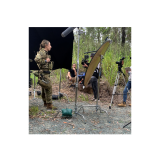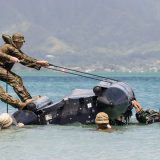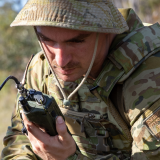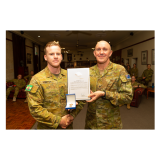Showing 3375 results
Author
Jack Harrigan-Purchase
SCDT Jack Harrigan-Purchase is currently a Staff Cadet and trainee at Royal Military College – Duntroon. At the time of writing this article, there are just over 40 days from Graduation as a part of the 2021 December class. SCDT Harrigan-Purchase, prior to conducting training at RMC-D graduated from the Australian Defence Force Academy with a Bachelor of Business in 2020, enlisting in January of 2018.
Author
Jake Rudge
Jake Rudge is a Royal Australian Infantry Officer who has experience in amphibious and motorised combat units. He has completed a Bachelors in Business and is currently studying a Masters in Strategy and Security. He is currently posted to Headquarters Defence Force Recruiting as a Staff Officer in Recruiting Attraction.











